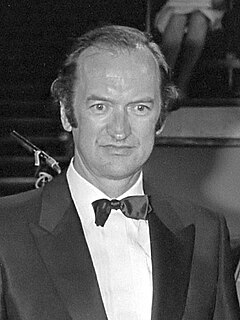The Quatuor Mosaïques is an Austrian string quartet, founded in 1987 by four members of the Concentus Musicus Wien, playing on historical musical instruments. They specialize in music of the 18th century.
Malin Hartelius is a Swedish soprano who performs regularly with conductors such as Nikolaus Harnoncourt, Ton Koopman, Riccardo Chailly, Sir John Eliot Gardiner, Peter Schreier, Herbert Blomstedt, and Frans Brüggen. She has collaborated with orchestras like the Oslo Philharmonic Orchestra, the Tonhalle Orchester Zurich, the San Francisco Symphony, and the Concentus Musicus Wien.
The Arnold Schoenberg Choir is a Viennese/Austrian choir which was founded 1972 by Erwin Ortner, who is still its artistic director. The choir has a high reputation both among conductors and among critics and the musical scene in general. All members of the choir have broad experience and expertise in vocal music; most of them have graduated from or are currently studying at the Vienna University of Music and Performing Arts. The choir is named after Viennese composer Arnold Schoenberg.

Markus Schirmer is an Austrian pianist.

Alice Harnoncourt is an Austrian classical violinist.
Milan Turković originates from an Austro-Croatian family, grew up in Vienna and became internationally known as one of the few bassoon soloists. Over the past two decades, he has become a successful conductor, making appearances all over the world.
David Reichenberg was an American oboist and a highly respected specialist on the baroque oboe. He was born in Cedar Falls, Iowa and learnt the flute, violin and piano as a child. He began his oboe studies with Dr Myron E. Russell of the University of Northern Iowa. Beginning in 1969, Reichenberg studied at the Indiana University School of Music, continuing his oboe studies with Jerry Sirucek, former oboist with the Chicago Symphony Orchestra. Graduating in 1972, Reichenberg moved to Salzburg, where he attended the Mozarteum. It was in Salzburg that Reichenberg met Nikolaus Harnoncourt, director of Concentus Musicus Wien. Reichenberg became increasingly interested in playing the oboe's repertoire on the instrument for which it had been written and, with the assistance of Harnoncourt, moved to Vienna in order to study baroque oboe with Jürg Schäftlein. He simultaneously studied oboe making with Paul Hailperin, building the instrument upon which he played for four years. Reichenberg took part in many concerts and recordings with Concentus Musicus, and gradually increased his activities with that group.
Elisabeth von Magnus is an Austrian classical mezzo-soprano. The daughter of conductor Nikolaus Harnoncourt and violinist Alice Harnoncourt, her professional name comes from her first marriage to Ernst-Jürgen von Magnus. She studied recorder in Vienna, theater at the Mozarteum in Salzburg and voice with Hertha Töpper at the Conservatory of Munich. Her other teachers have included Paul Schilhawsky. Early in her career, she performed as a recorder soloist with the Concentus Musicus Wien. She has also worked for ORF as a presenter and announcer.

Christian Gerhaher is a German baritone and bass singer in opera and concert, particularly known as a Lieder singer.
Kurt Equiluz is an Austrian classical tenor in opera and concert, known for recording works of Johann Sebastian Bach with Nikolaus Harnoncourt and Helmuth Rilling, a member of the Vienna State Opera as a tenor buffo from 1957 until 1983.
Panajotis Iconomou is a German bass-baritone of Greek parentage.
Oliver Widmer is a Swiss operatic bass-baritone whose international career has encompassed lieder, opera, and oratorio. In 1998 he created the role of Jäger in Heinz Holliger's opera Schneewittchen.
Thomas Thomaschke is a German bass singer in opera and concert. He has appeared in parts such as Hunding in Wagner's Die Walküre and Sarastro in Mozart's Die Zauberflöte in major opera houses in Europe and international festivals. He has also performed and recorded oratorios and cantatas.

Elisabeth Kulman is an Austrian classical singer who has performed operatic roles in soprano, mezzo-soprano and contralto repertory. She has appeared at opera houses in Vienna and internationally. She has performed early operas such as Legrenzi's Il Giustino as well as new works, creating the role of Gora in the premiere of Reimann's Medea at the Vienna State Opera. She recorded Lieder by Mussorgsky, Bach's Christmas Oratorio with Peter Schreier and Beethoven's Missa solemnis with Nikolaus Harnoncourt. From 2015, she has focused on concert singing.
Karina Canellakis is an American conductor and violinist.
Herbert Lippert is an Austrian operatic tenor.
Genia Kühmeier is an Austrian operatic soprano who has appeared internationally in opera and concert. She made her debut at the Vienna State Opera as Pamina in Mozart's Die Zauberflöte in 2003, and sang the role also at the Salzburg Festival and the Metropolitan Opera.
Julia Kleiter is a German operatic soprano and a concert singer. After her debut as Mozart's Pamina at the Opéra Bastille in Paris, she has appeared at major international opera houses, especially the Zurich Opera, and festivals, including the Salzburg Festival. She is also active as a concert singer, and has recorded Bach with Nikolaus Harnoncourt, among others.

















